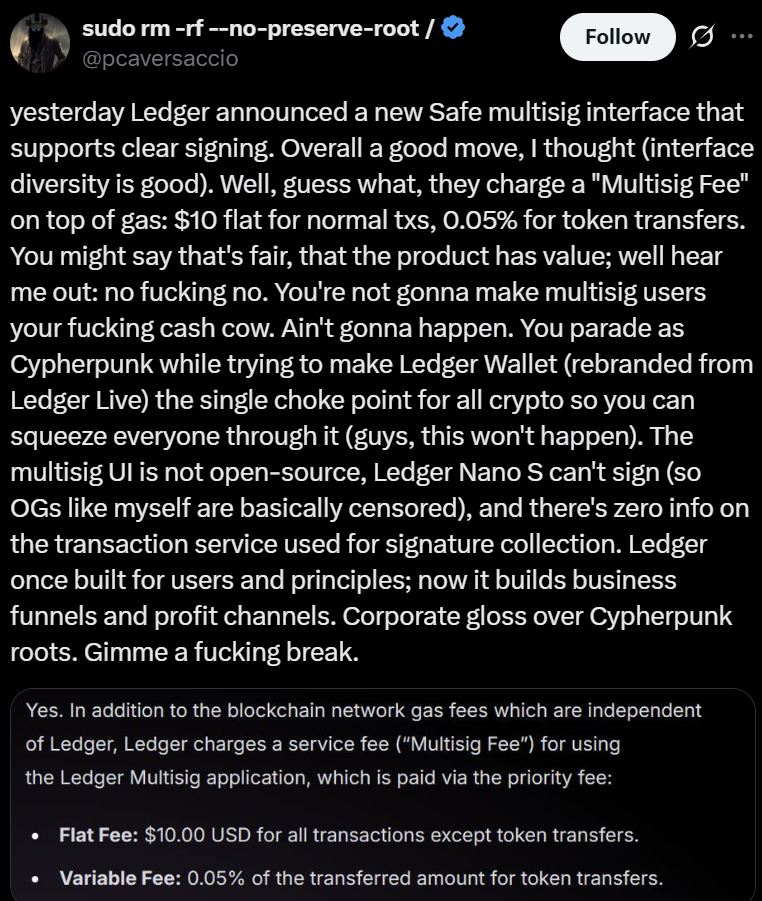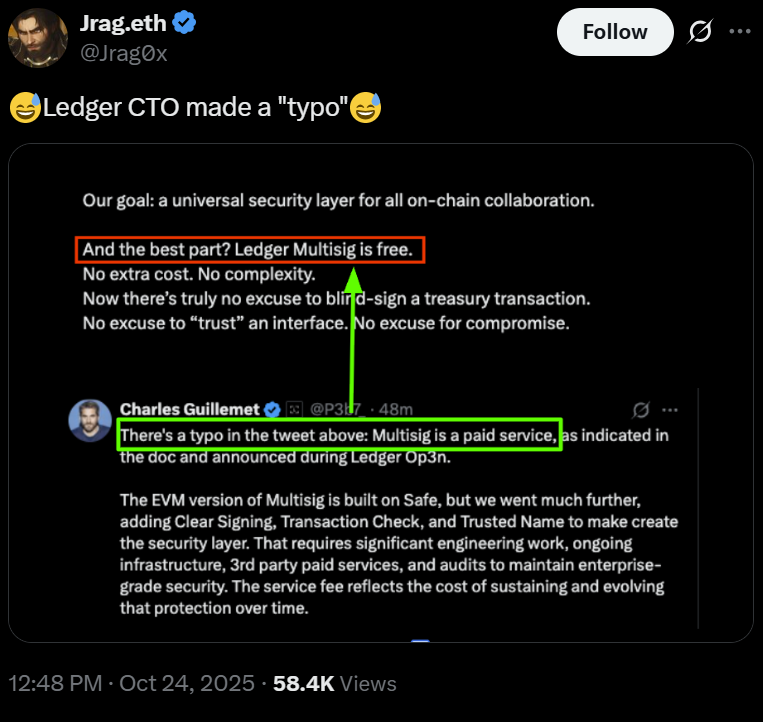
Ledger, the renowned hardware wallet provider, has rolled out a new multisig interface that enthusiasts applaud for its technical advancements but have criticized due to its newly imposed transaction fees, which some are labeling as excessive.
The new Ledger Multisig application charges a flat transaction fee of $10 for all actions except token transfers, which come with a 0.05% variable fee. This is in addition to the regular blockchain network gas fees that are charged regardless of Ledger’s services.
Ethereum developer and X user pcaversaccio expressed discontent with this strategy, stating: “You parade as Cypherpunk while attempting to make Ledger Wallet (rebranded from Ledger Live) the single choke point for all crypto so you can squeeze everyone through it (guys, this won’t happen).”
 Source
Source
Some members of the crypto community also pointed out a seeming contradiction in Ledger CTO Charles Guillemet’s assertion that clear signing is vital for secure transactions and the recent introduction of recurring fees related to these features. Concerns arose over inconsistencies in Guillemet’s remarks and Ledger’s official documentation, which indicated Multisig as a complimentary service, while he implied it may require payment. Guillemet later clarified that an earlier post regarding no fees was an error.
 Source
Source
Related: Ledger and Trezor 2025 hardware wallets released: What’s new for users?
Ledger’s Market Presence and Security Record
Acknowledging its position as the largest hardware wallet provider in the cryptocurrency realm, Ledger boasts of selling more than 7.5 million devices throughout its decade-long existence. They claim to protect about 20% of the global cryptocurrency market value.
Hardware wallets such as Ledger’s are pivotal for users seeking to maintain personal control over their digital assets—a core ethos of the cryptocurrency community that advocates for ownership over reliance on centralized exchanges.
While these hardware wallets are notably less vulnerable to common online threats—with Ledger asserting that none of its devices have experienced breaches—security experts at Kaspersky caution that users remain susceptible to phishing attacks and social engineering scams. Such threats may lead individuals to unwittingly disclose their private keys or recovery phrases, effectively undermining the wallet’s physical security.
Related: Inside the $6.5M wallet drain — How users can dodge growing permit-signature traps


